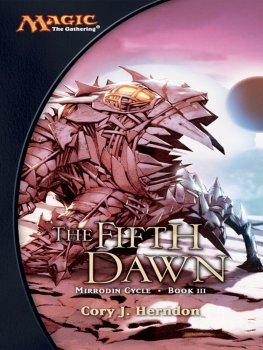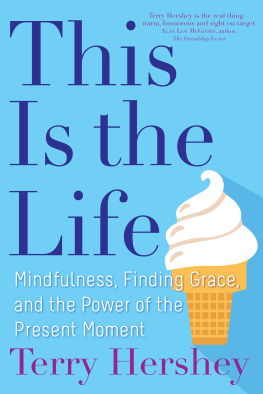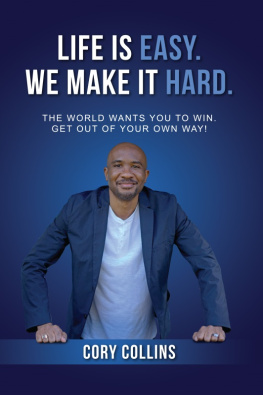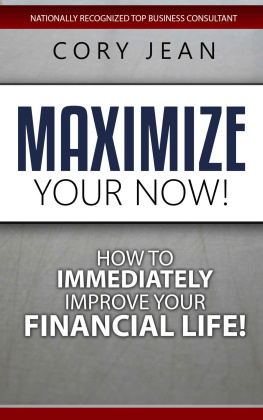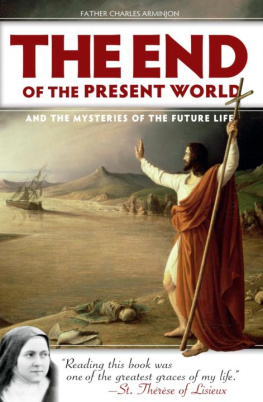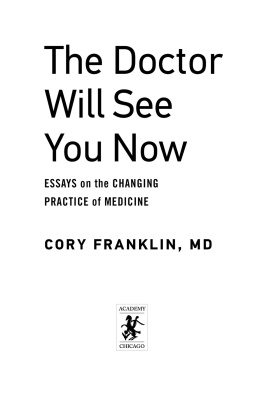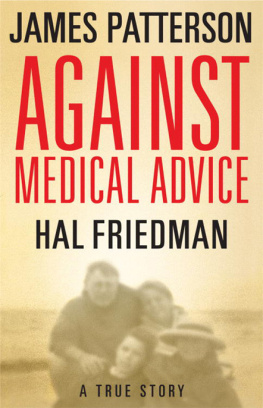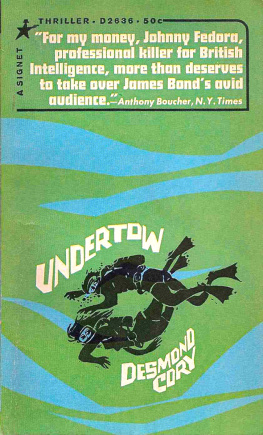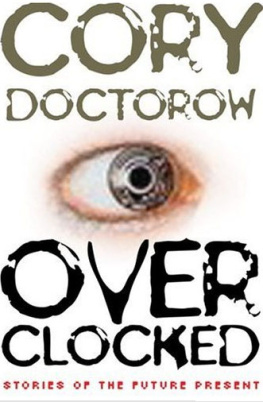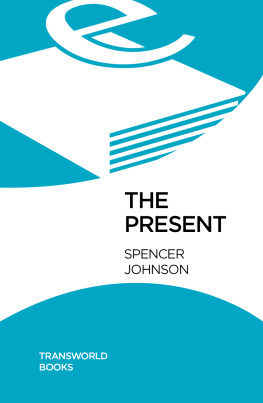Cory Muscara - Stop missing your life : how to be deeply present in an un-present world
Here you can read online Cory Muscara - Stop missing your life : how to be deeply present in an un-present world full text of the book (entire story) in english for free. Download pdf and epub, get meaning, cover and reviews about this ebook. year: 2019, genre: Home and family. Description of the work, (preface) as well as reviews are available. Best literature library LitArk.com created for fans of good reading and offers a wide selection of genres:
Romance novel
Science fiction
Adventure
Detective
Science
History
Home and family
Prose
Art
Politics
Computer
Non-fiction
Religion
Business
Children
Humor
Choose a favorite category and find really read worthwhile books. Enjoy immersion in the world of imagination, feel the emotions of the characters or learn something new for yourself, make an fascinating discovery.

- Book:Stop missing your life : how to be deeply present in an un-present world
- Author:
- Genre:
- Year:2019
- Rating:4 / 5
- Favourites:Add to favourites
- Your mark:
- 80
- 1
- 2
- 3
- 4
- 5
Stop missing your life : how to be deeply present in an un-present world: summary, description and annotation
We offer to read an annotation, description, summary or preface (depends on what the author of the book "Stop missing your life : how to be deeply present in an un-present world" wrote himself). If you haven't found the necessary information about the book — write in the comments, we will try to find it.
Cory Muscara: author's other books
Who wrote Stop missing your life : how to be deeply present in an un-present world? Find out the surname, the name of the author of the book and a list of all author's works by series.
Stop missing your life : how to be deeply present in an un-present world — read online for free the complete book (whole text) full work
Below is the text of the book, divided by pages. System saving the place of the last page read, allows you to conveniently read the book "Stop missing your life : how to be deeply present in an un-present world" online for free, without having to search again every time where you left off. Put a bookmark, and you can go to the page where you finished reading at any time.
Font size:
Interval:
Bookmark:
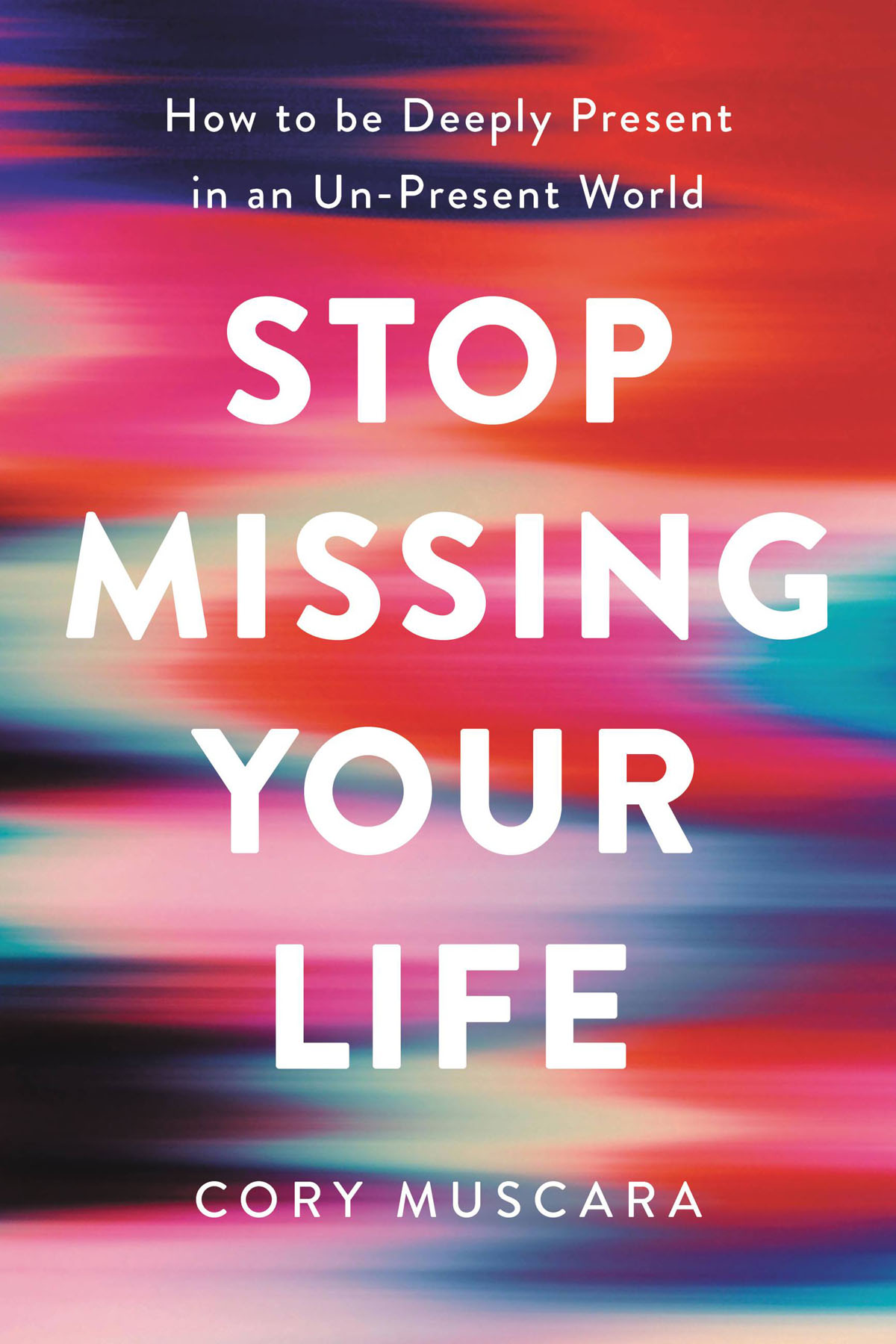
This book is designed to provide information and practices to help you deepen presence and improve your well-being. It offers tips, strategies, and ideas, but is not intended to replace, countermand, or conflict with the advice given to you by your own physician or therapist. Individuals with medical or mental health concerns should consult with health care providers about the appropriateness of the practices discussed in this book.
Mention of specific names of people and identifying details have been changed to respect their privacy.
Copyright 2019 by Cory Muscara
Cover design by Kerry Rubenstein
Cover image oxygen/Getty Images
Cover copyright 2019 Hachette Book Group, Inc.
Hachette Book Group supports the right to free expression and the value of copyright. The purpose of copyright is to encourage writers and artists to produce the creative works that enrich our culture.
The scanning, uploading, and distribution of this book without permission is a theft of the authors intellectual property. If you would like permission to use material from the book (other than for review purposes), please contact permissions@hbgusa.com. Thank you for your support of the authors rights.
Hachette Books
Hachette Book Group
1290 Avenue of the Americas, New York, NY 10104
www.HachetteBooks.com
@HachetteBooks
First Edition: December 2019
Published by Lifelong Books, an imprint of Perseus Books, LLC, a subsidiary of Hachette Book Group, Inc. The Lifelong Books name and logo is a trademark of the Hachette Book Group.
The Hachette Speakers Bureau provides a wide range of authors for speaking events. To find out more, go to www.hachettespeakersbureau.com or call (866) 376-6591.
The publisher is not responsible for websites (or their content) that are not owned by the publisher.
Library of Congress Control Number: 2019953171
ISBNs: 978-0-7382-8529-0 (trade paperback); 978-0-7382-8531-3 (ebook)
E3-20191115-JV-NF-ORI
For my parents, Cory and Lori.
Thank you for teaching me to dance, love, cry, sing, and care.
I owe everything to you.
Sit. Feast on your life.
Derek Walcott
One title you could put on my business card is meditation teacher. It still feels odd for me to say that out loud because I recall how I originally pursued meditation for a rather youthful, wayward reason: I was trying to impress a girl.
My girlfriend in college was into meditation. I was an economics major and knew next to nothing about meditation. I figured if I meditated, she would think I was cool. So, I started meditating.
She broke up with me two weeks later.
Despite my somewhat superficial undertaking and the unfortunate breakup, I continued to meditate. I didnt really know what I was doing. I would lie down on my dorm room bed, put my hands on my belly, and think INHALE EXHALE INHALE EXHALE. I thought it was weird, but I did it for fifteen minutes a day, three times a week. Within a month, some cool things started to happen.
The first related to sleep. At that point, I was a restless sleeper. It started in adolescence when my mind would race throughout the night. I tried sleep meds, but they made me groggy. Within a few weeks of hands-on-belly INHALE EXHALE, I went from waking up every half hour to only about two or three times a night. I even started having nights when I didnt wake up at all, which, outside of waking up hungover, hadnt happened before.
Another positive shift related to focus. I was going to class, but I wasnt actually in class, meaning my body was in one place, but my mind was in another. I really wanted to be focused, but my mind just wandered all over the place. After about a month of meditating, though, I felt like I had this new superpower that some people call paying attention. With it, I actually started to enjoy learning, my grades improved, I became a better listener, and my mind wasnt so chaotic.
A smile would sometimes creep up on my face. There was a lightness in my step. I felt more peaceful.
Now, I dont want to oversell it. Its not like the clouds parted and all my problems went away, but having struggled with anxiety and depression through adolescence, feeling good out of seemingly nowhere was a major development in my life.
Then, something happened that took this from an interesting hobby with perks to becoming an integral part of my life.
My junior year, thirty of us from the economics department visited the New York Stock Exchange to meet with some bigwig hedge fund manager. Everyone said this was the guy to meet. We took the eight-hour trip from Allegheny College to Manhattan, where we sat in a conference room with floor-to-ceiling windows overlooking the city. Eventually, this guy walked in wearing what must have been a $10,000 suit. He pulled up his slides and gave a two-hour PowerPoint presentation. By the end of it, I felt like my soul had been sucked out of my body. I was bored, uninspired, and completely turned off. I remember my visceral repulsion and thinking, I dont know what I want to do with my life, but I know for sure I do not want to end up like this guy.
To be fair to him, I have no idea what was causing his misery. He may have had a colonoscopy before he came in the room, so I cant confirm that he was perpetually unhappy. Regardless of what was actually going on, I owe him a thank-you, because that experience made me ask myself, If thats not what I want, then what is it that I do want?
After spending months with this question, one answer kept coming to the surface: I want to be happy.
I still cringe at how trite that sounds. It reeks of every social media post that says life is all about happiness or happiness is a choice, which turn me off as much as that Wall Street hotshot. But I cant deny that happiness was my new focus. I became engrossed with one big question: What does it mean to cultivate a happiness that is not solely contingent upon external variables like money, my job title, or things going well?
Im sure you can imagine a young man coming home from college, talking to his father, saying, Hey, Dad! I know I was going to go into business, but now I want to understand what it means to cultivate a happiness that is not solely contingent upon external variables!
You might imagine a response like, Good for you, son. Now, go get a job.
Fortunately, thats not how it went down. Instead, one of the great gifts of my life is that my father, a family practice physician on Long Island, had already started studying ways to help patients change their behaviors, improve their health, and become happier. He had been getting frustrated with the direction that health care was going, feeling like he couldnt serve his patients in the way he sought to from the outset. So, he turned to studying evidence-based modalities for fostering health and well-being in the science of mindfulness meditationa practice to develop moment-to-moment awarenessand positive psychology, the scientific study of well-being.
When I told him that I was interested in happiness, instead of shutting me down, he encouraged me. And so did my mom, who is a social worker and also has a deep interest in helping people live better lives. They basically said, People will always want to be happier. Theres new science to help people be happier, so if you pursue this study and cultivate the right skills you might be able to create a career in this. My dad gave me a book on mindfulness meditation called Full Catastrophe Living
Font size:
Interval:
Bookmark:
Similar books «Stop missing your life : how to be deeply present in an un-present world»
Look at similar books to Stop missing your life : how to be deeply present in an un-present world. We have selected literature similar in name and meaning in the hope of providing readers with more options to find new, interesting, not yet read works.
Discussion, reviews of the book Stop missing your life : how to be deeply present in an un-present world and just readers' own opinions. Leave your comments, write what you think about the work, its meaning or the main characters. Specify what exactly you liked and what you didn't like, and why you think so.


